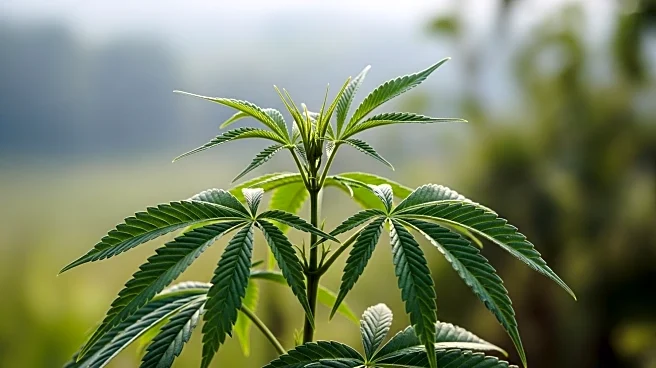What is the story about?
What's Happening?
Recent research has focused on understanding how plants respond to multifactorial stresses, such as drought, heat, nutrient limitations, and pathogen pressure, which are becoming more prevalent due to climate change. This study integrates various scientific approaches, including biotechnological, molecular, biochemical, and ecophysiological methods, to dissect plant responses to these complex stress conditions. The research aims to uncover regulatory networks and metabolic trade-offs that influence plant adaptation and resilience. By utilizing high-throughput omics, synthetic biology, advanced imaging, and systems-level modeling, scientists are working to identify predictive markers and sustainable management practices that can enhance crop resilience and ecosystem stability.
Why It's Important?
Understanding plant responses to multifactorial stresses is crucial for developing strategies to improve crop resilience and ensure food security in the face of climate change. As plants are exposed to increasingly complex stress conditions, traditional single-stress approaches may not suffice. This research provides insights into the physiological and ecophysiological mechanisms that govern plant adaptation, offering potential pathways for breeding climate-ready crops. The integration of interdisciplinary approaches could lead to innovative solutions that support sustainable agriculture and ecosystem management, benefiting both farmers and the environment.
What's Next?
The next steps involve translating laboratory findings into practical applications in agricultural settings. Researchers aim to develop new tools and predictive markers that can be used to breed crops capable of withstanding multifactorial stresses. Additionally, integrating modeling, artificial intelligence, and systems biology could enhance the prediction of plant responses under real-world climate scenarios. These advancements may lead to the creation of climate-resilient strategies that support both crop production and natural ecosystem stability.
Beyond the Headlines
The research highlights the role of the plant microbiome in modulating physiological responses and resilience to combined stresses. Understanding these interactions could lead to novel ecophysiological traits and functional markers for breeding more resilient crops. Furthermore, the study emphasizes the importance of synthetic biology and new plant breeding techniques in enhancing plant resilience, potentially revolutionizing agricultural practices in the face of climate change.


















